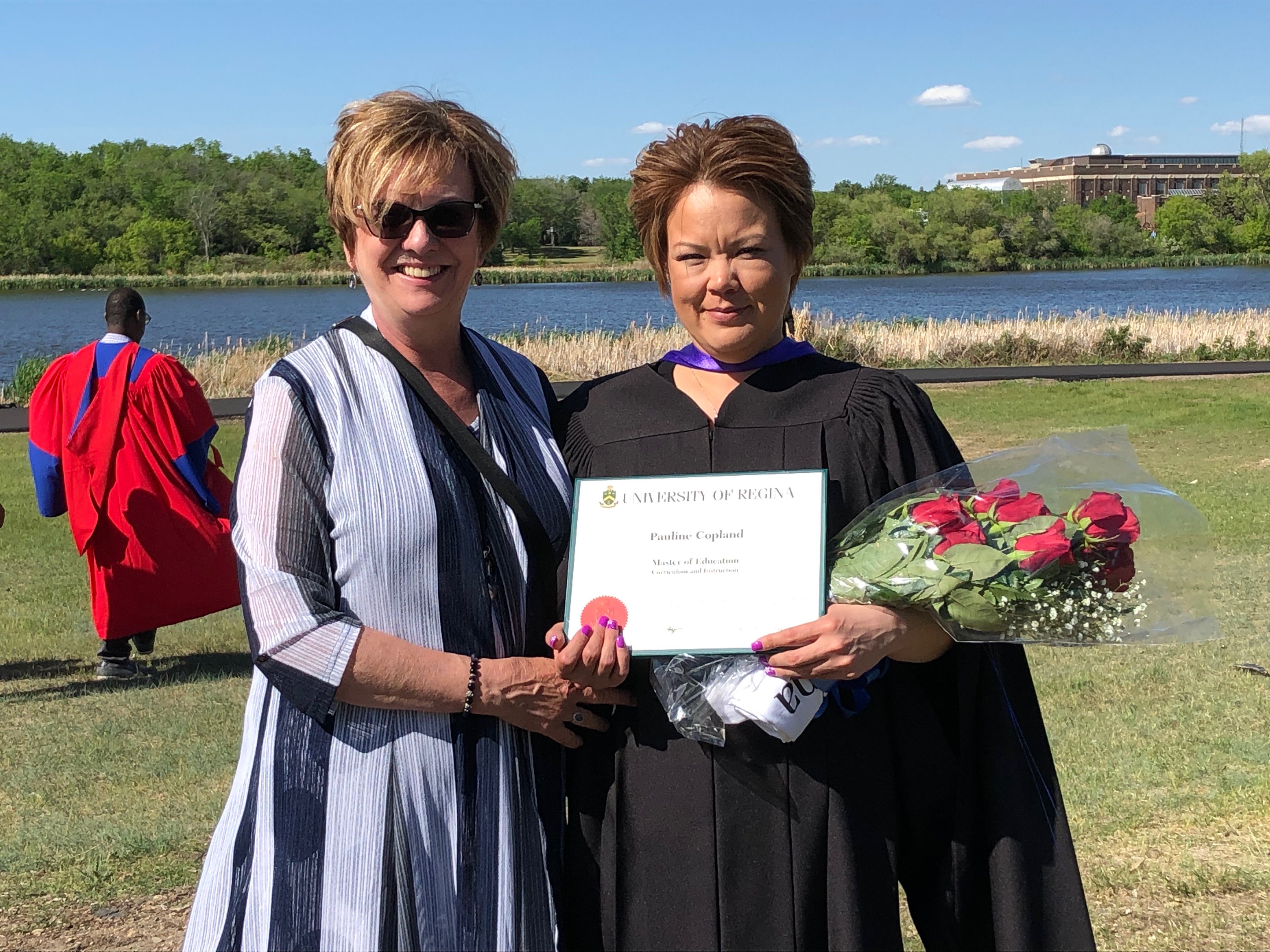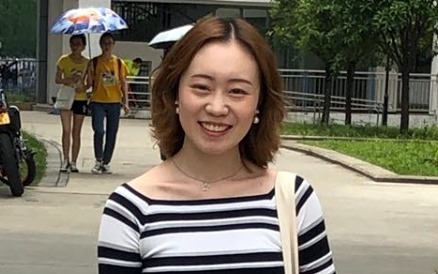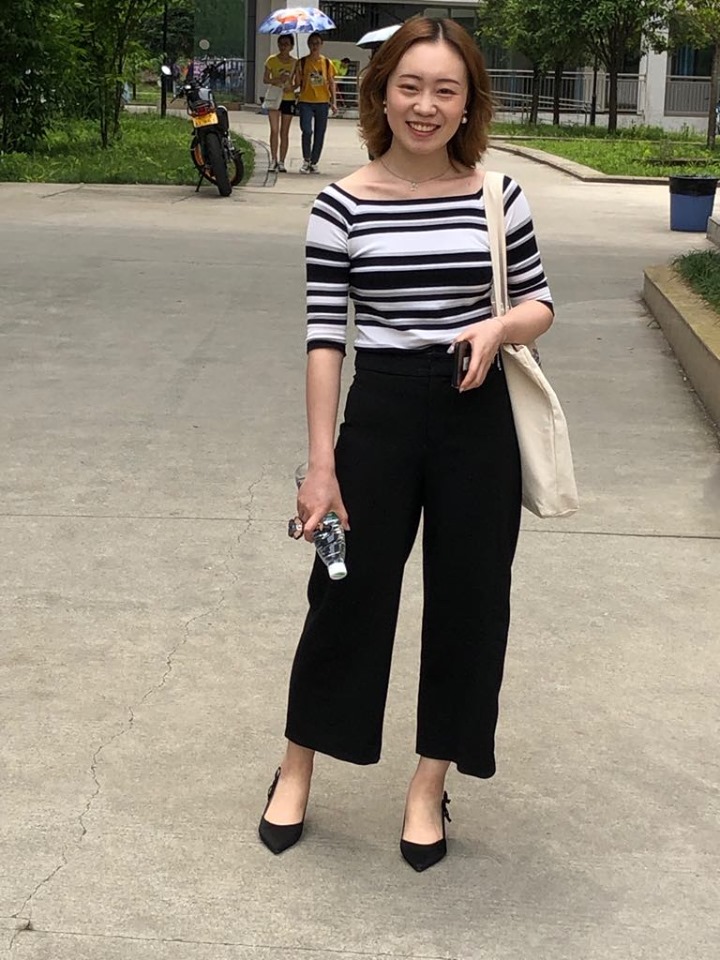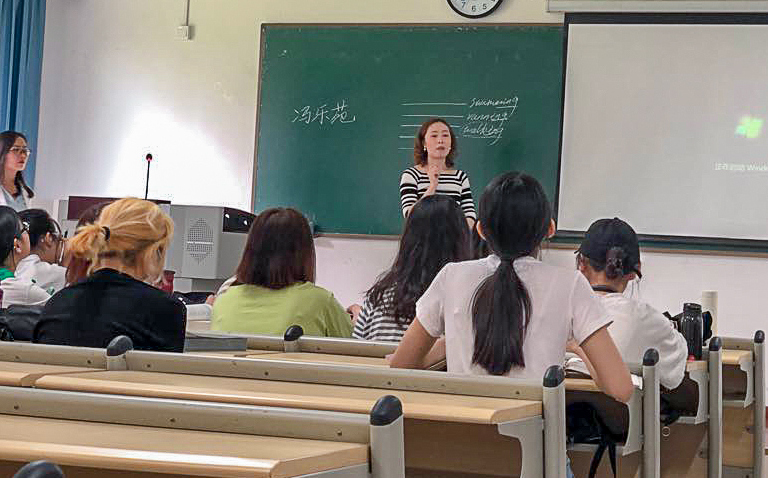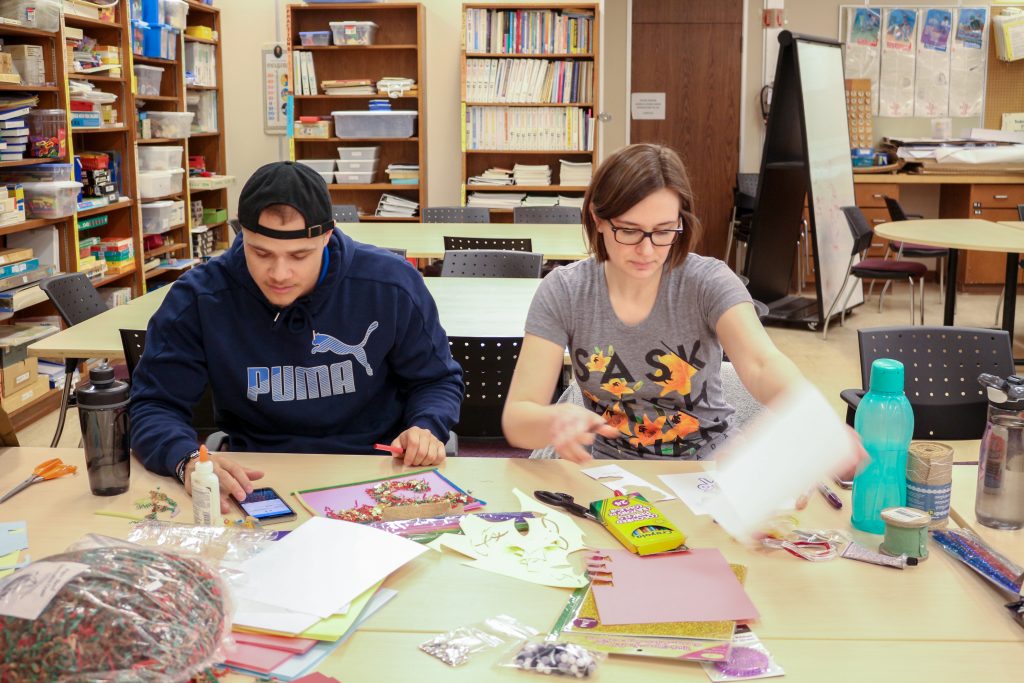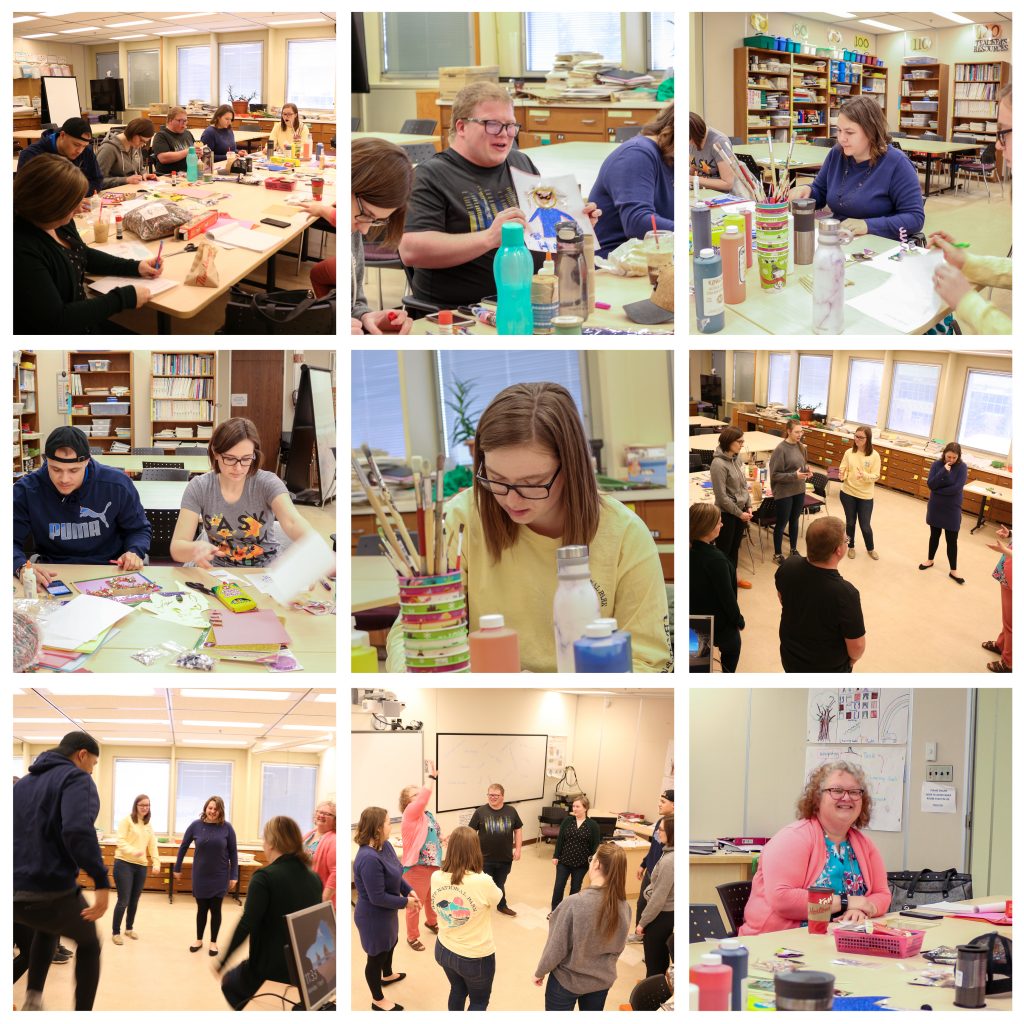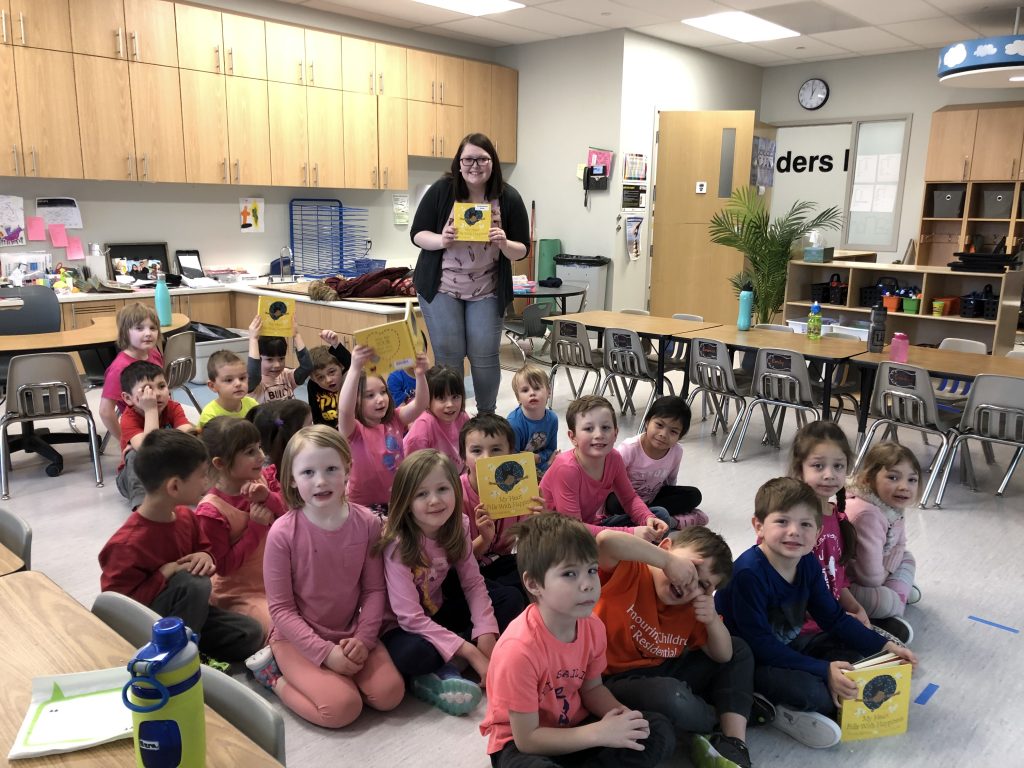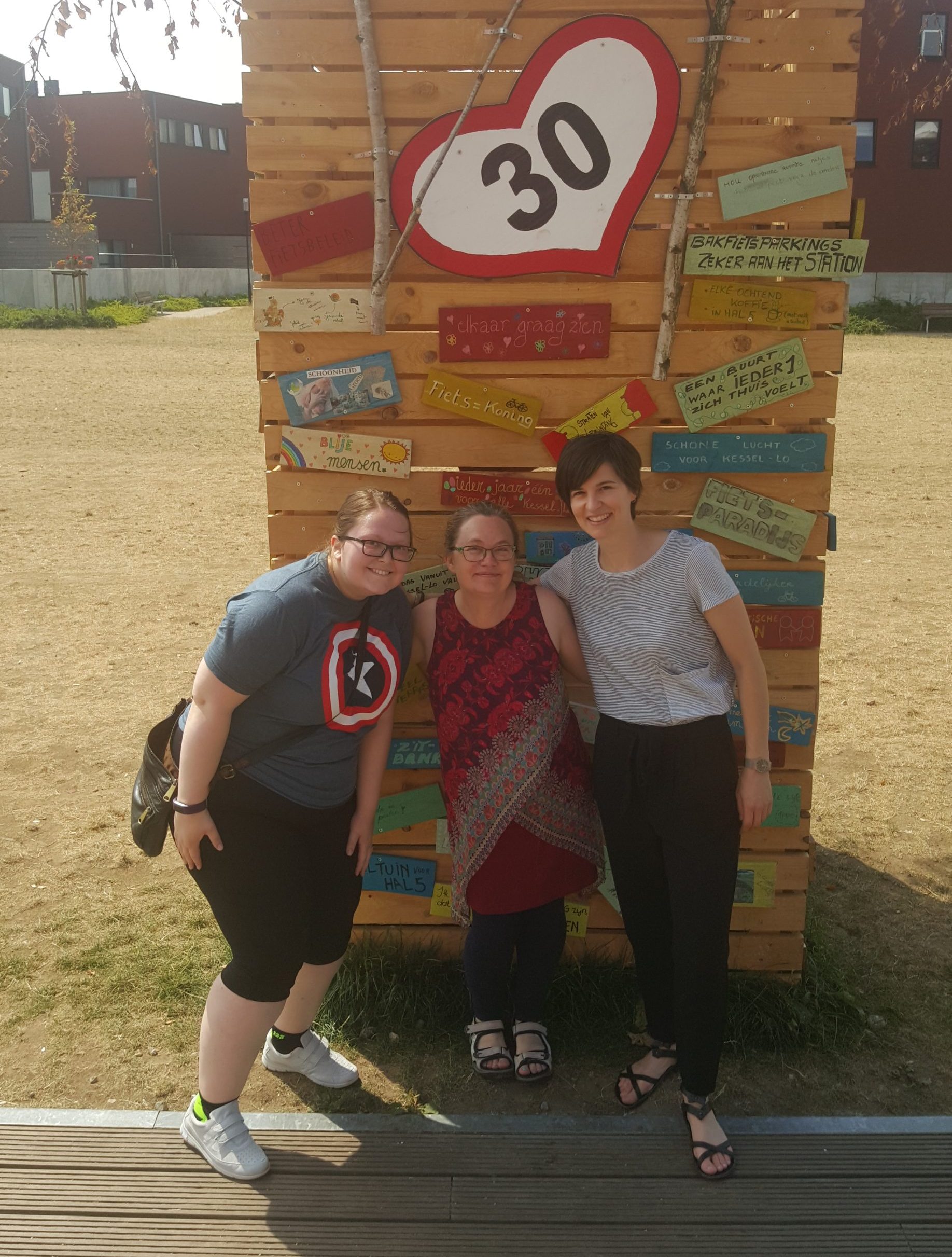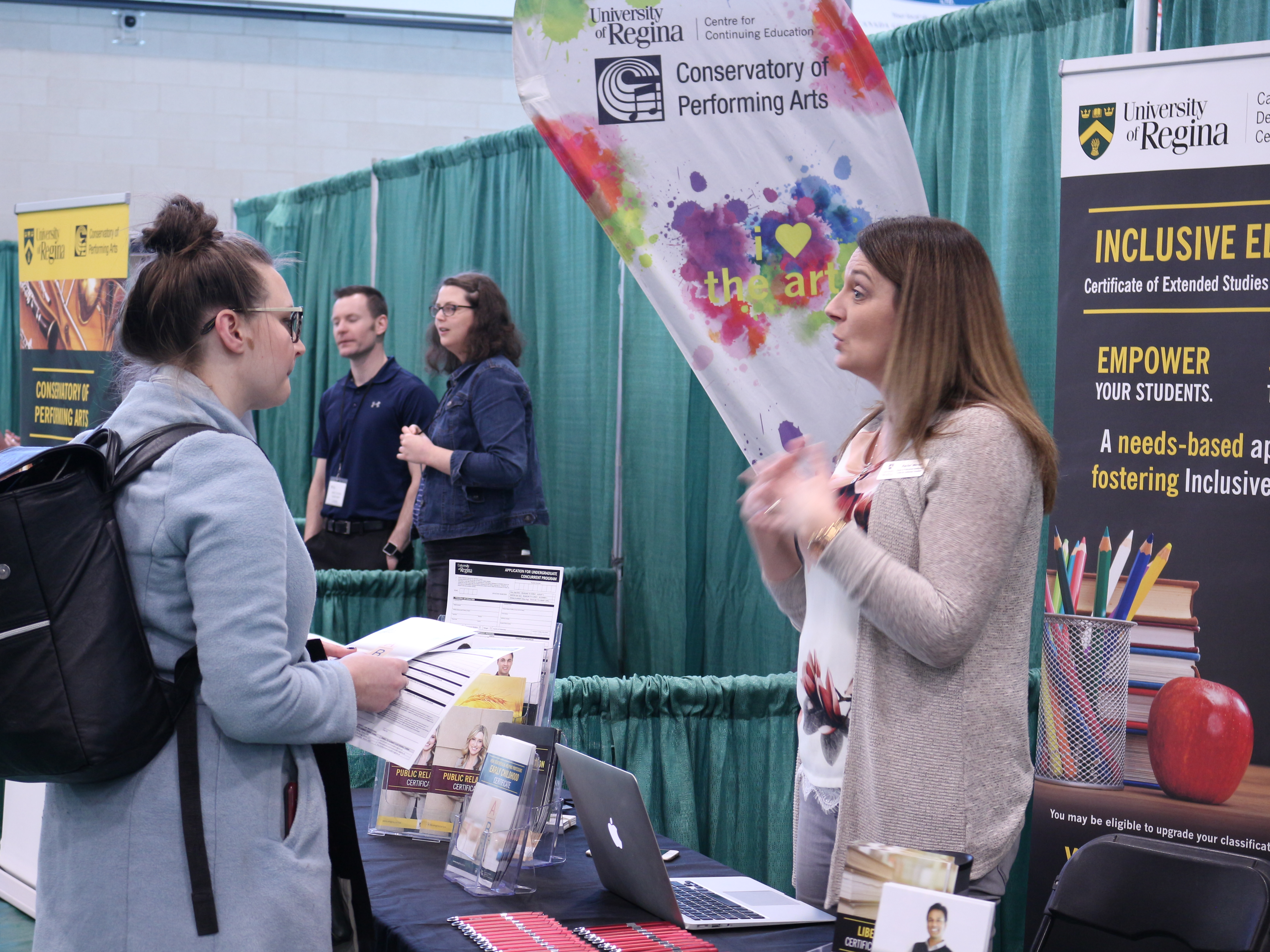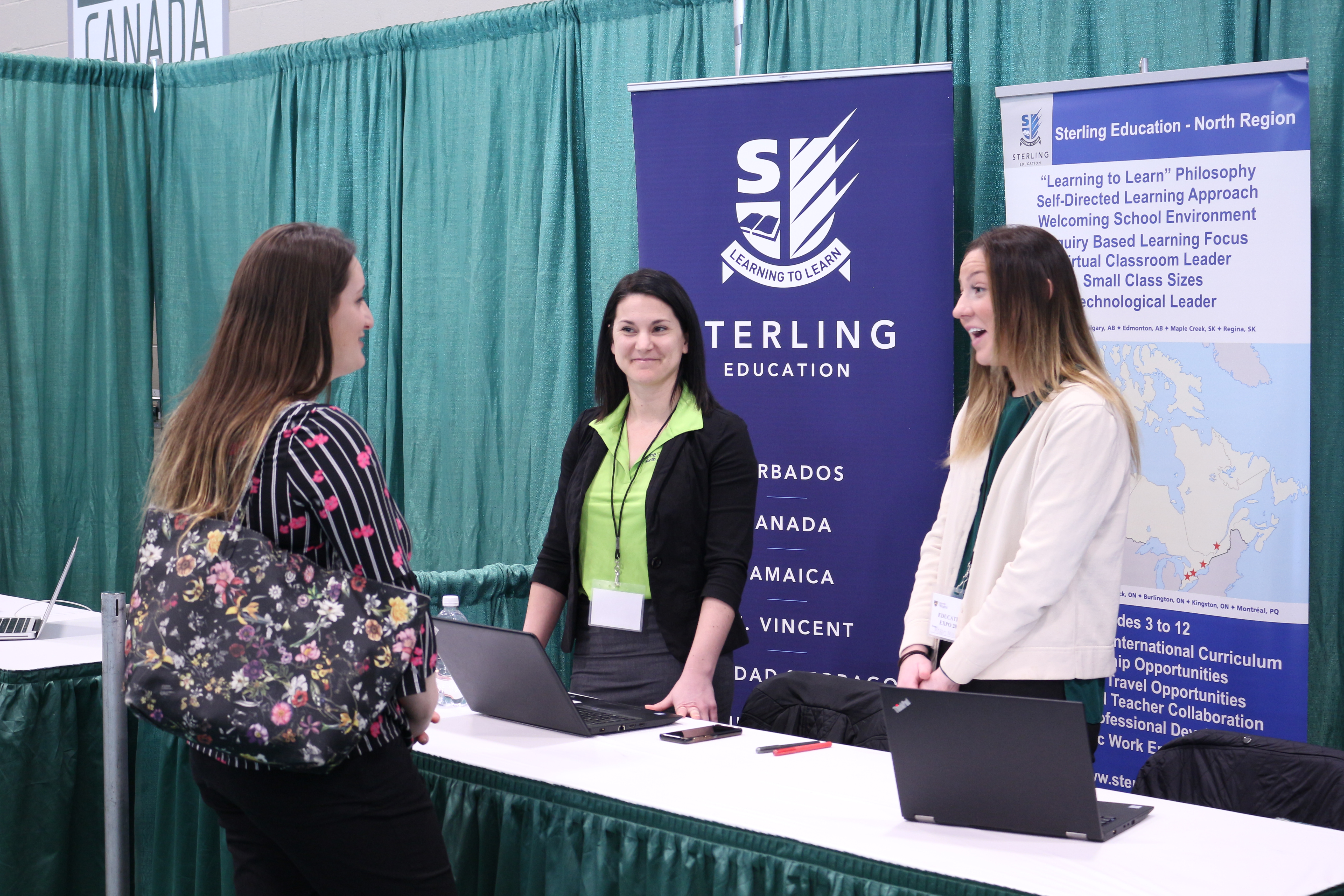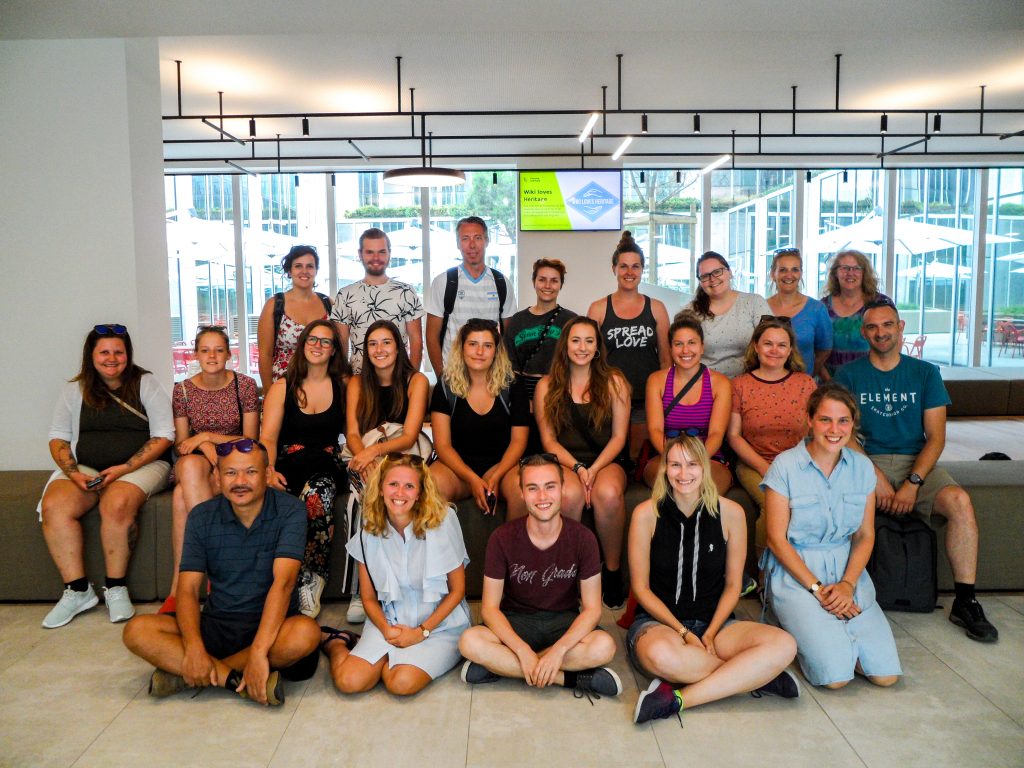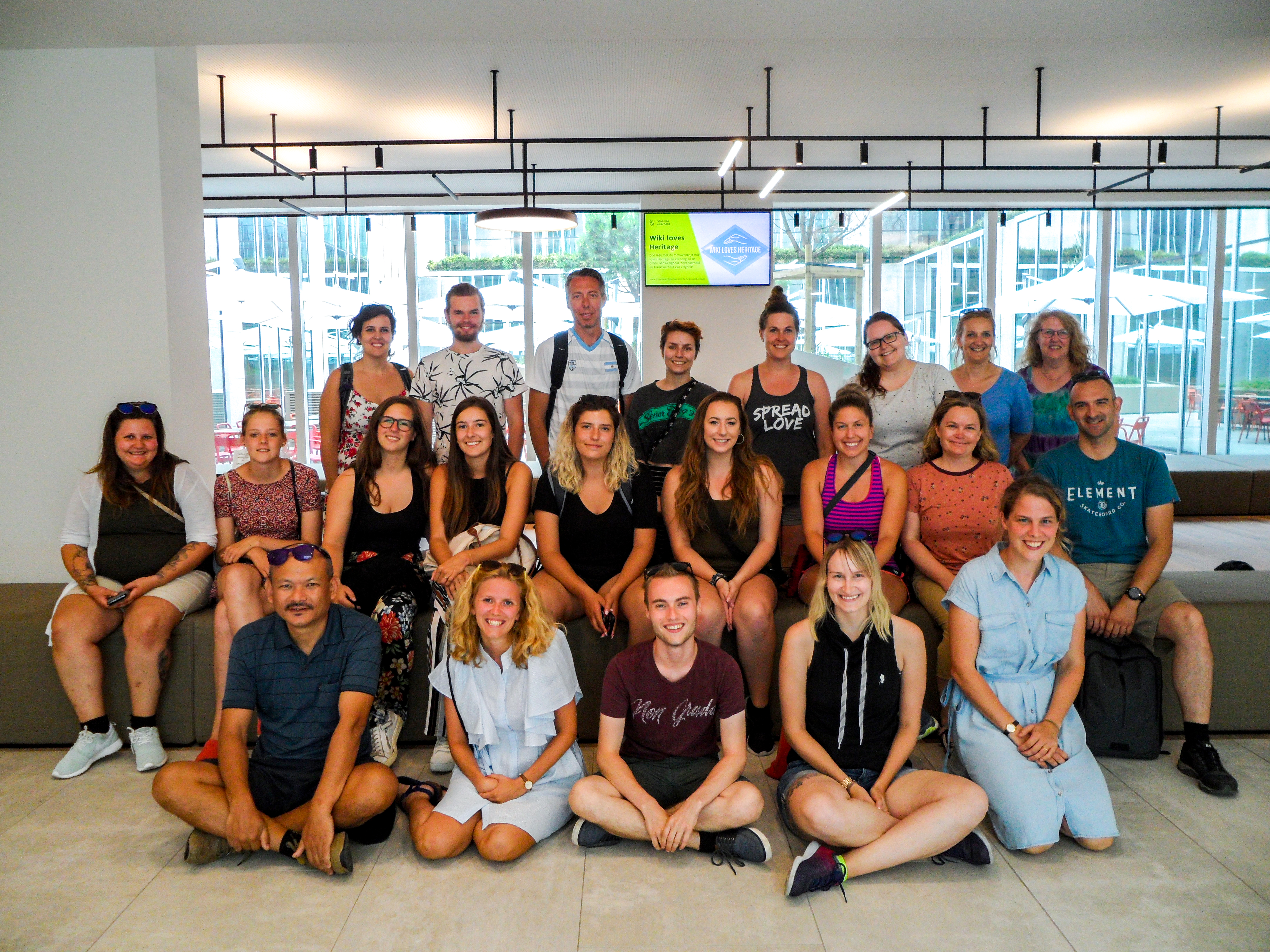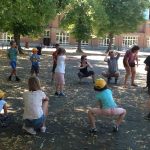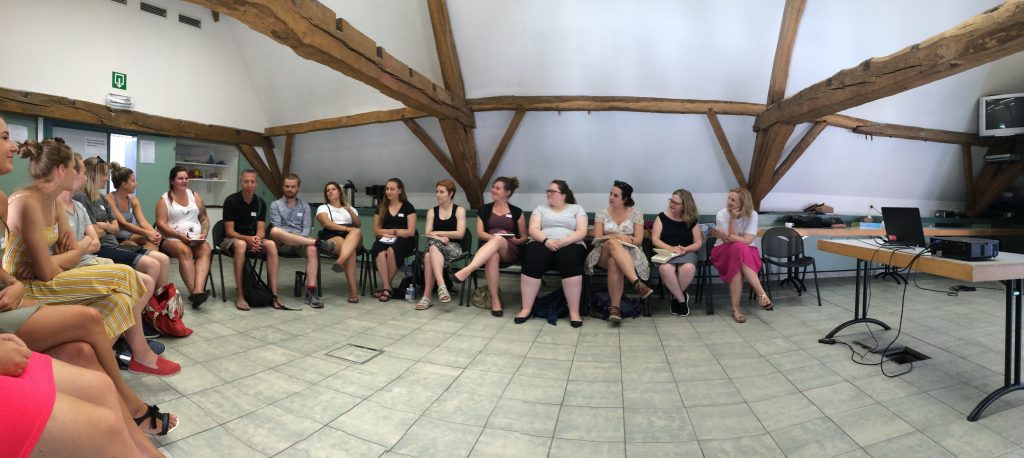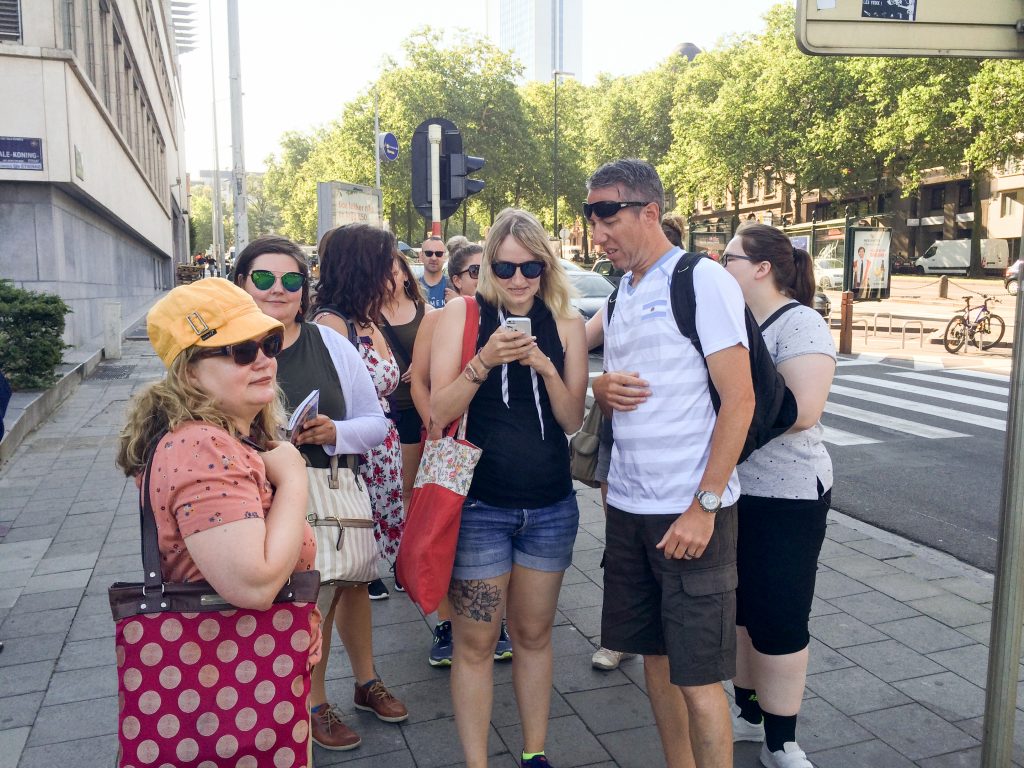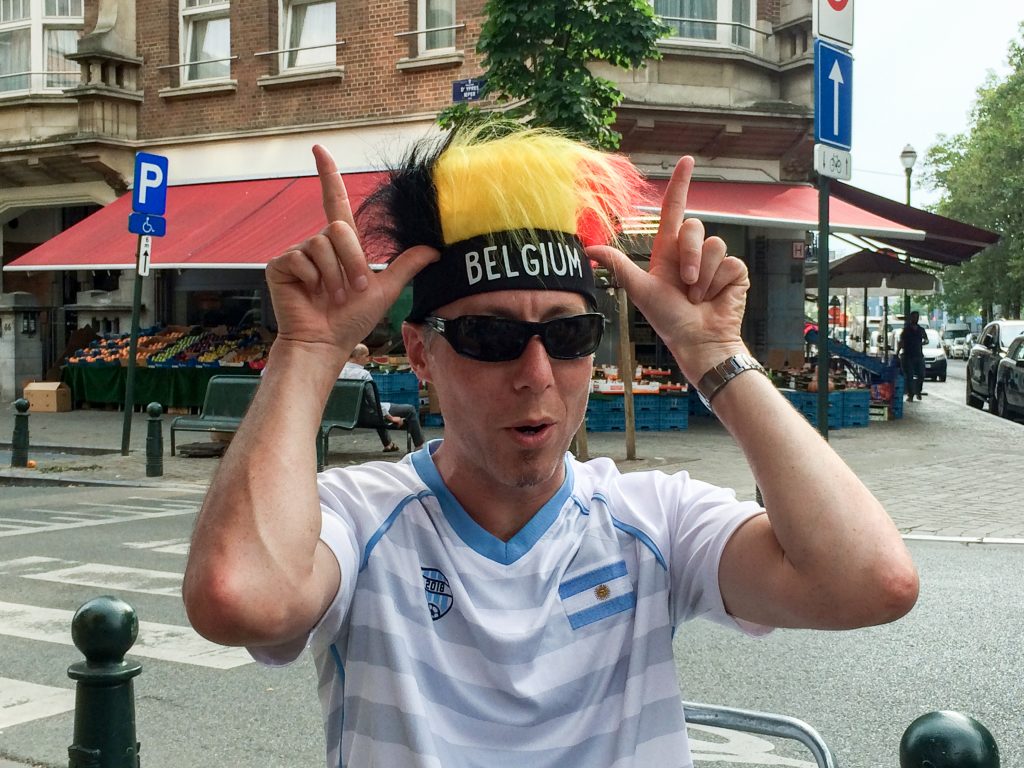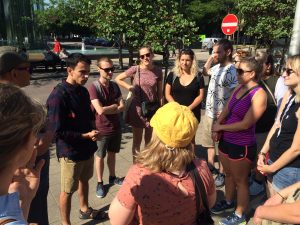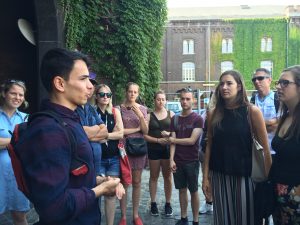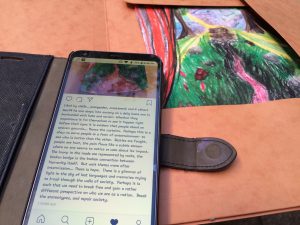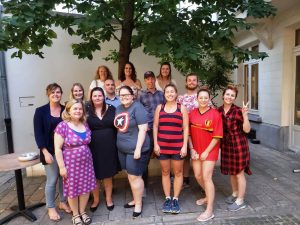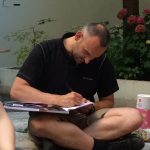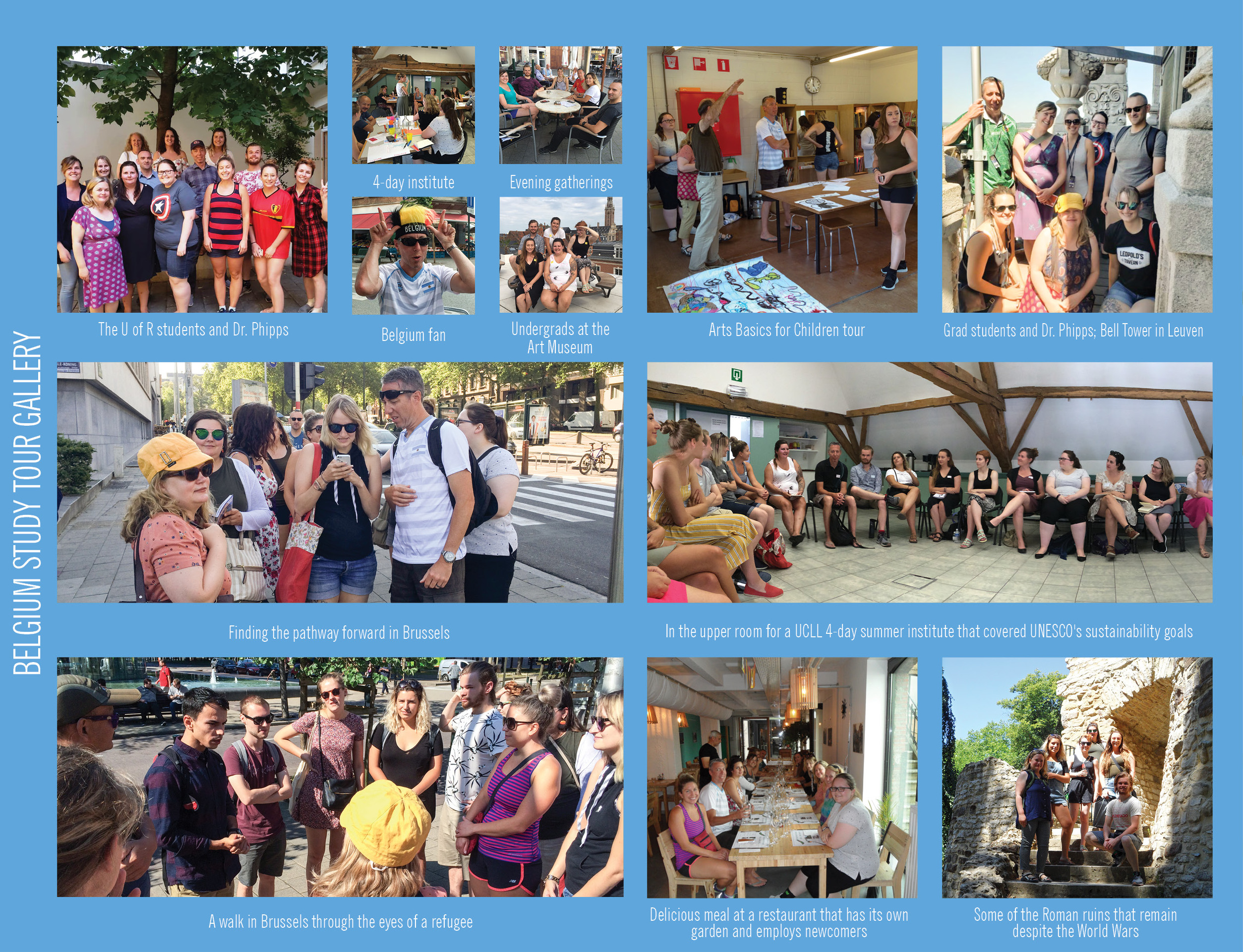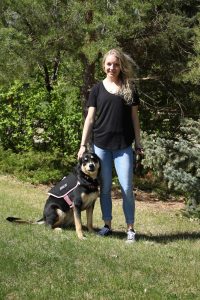
Erin Strueby (BEd/BKin ’20) has a passion for working with students with exceptional needs. But teaching wasn’t Strueby’s career goal when she first came to the University of Regina (U of R). After being recruited to the U of R Cougar’s Track and Field team, she started out as a Kinesiology student. Teaching became her goal through working in the U of R Summer Sports School (SSS) as a camp leader.
“Through SSS, I discovered that I really enjoy working with children, building relationships, and teaching new games and skills,” says Strueby. After her second year of SSS, Strueby decided to do a joint degree, beginning her Education program while also completing her Kinesiology program. Because Summer Sports School had given her an opportunity to work with children of all abilities, Strueby says she, “developed a true passion for working alongside children with exceptional needs.” She thus decided to complete a Certificate of Extended Studies in Inclusive Education. Strueby says, “Although becoming a teacher was not where I thought I would end up, I am incredibly happy with the path I ended up on and cannot wait to start my career as a teacher.”
However, Strueby has concerns about her career path as a teacher because Strueby herself is a person with an exceptional need: She requires the assistance of her service dog, Stella. Strueby’s reasons for needing Stella are not immediately apparent to others: As a student, she has demonstrated academic proficiency having just finished her seventh year at the University of Regina and she is also a dedicated athlete, as seen in her competitive cross country and long distance running with the U of R Cougars for four years.
Strueby says, “Because my disability is not visible, I often get asked, ‘Why do you need a service animal?’ I have also been asked, ‘What is wrong with you,’ ‘Are you blind or something,’ and ‘Whose service animal are you holding?’ Fortunately, these questions do not easily offend me and I am able to respond in a way that provides people with further knowledge on service animals.”
In her public life, Strueby faces challenges and obstacles because of a lack of knowledge about the use of a service animal. For example, many public places do not know the difference between a service animal and a support/therapy animal. Strueby says, “According to the Saskatchewan Code of Human Rights, support or therapy animals do not have the same rights as service animals do, and are restricted access to many public places. I have often been denied access to places because people think my service animal is a support animal. Trying to explain the difference between a service animal’s role and a support/therapy animal’s role can be rather difficult when people are not open to understanding. This is where I have encountered many issues and struggles when I am trying to live everyday life.”
While Strueby turns many difficulties into opportunities to educate, she also experiences situations which can’t be responded to. For instance, she says, “People have glared, whispered, and said ‘I guess anyone can get a service animal for anything now-a-days’ or ‘They seem to just let dogs everywhere.’”
Another challenge Strueby faces is how others respond to her service animal. She says, “I have also had people swoon over my service animal, make kissy noises or whistle at her to get her attention, and mention how cute she is. Additionally people also try to take pictures of her as if seeing a service animal is a rare phenomenon.”
Strueby compares Stella to a wheelchair: “It is not often that people make snide remarks to people who are in wheelchairs, or to comment on ‘how cute’ a wheelchair is, or to take pictures of it.” Strueby points out that societal norms about visible disabilities teach the public not to ask about how another person is managing their disability, but these norms don’t extend to invisible disabilities.
For example, because Strueby requires Stella only in certain conditions, she is often asked, “Where’s Stella?” when she leaves Stella at home. Strueby says, “Seeing that I make use of my service animal only when I feel I need it, people often think I am faking mental illness, or only had Stella certified because I wanted to be able to take her places with me. This is so far from the truth—having to take a service animal with you in order to function can be such a burden; it is not ‘fun,’ it is not ‘cool,’ and it can make everyday tasks much more difficult.”
“Stella is an incredible tool I have the privilege to use. When I am in busy environments she acts as a barrier between me and other people to ease my social anxiety. During stressful and overwhelming moments in class she will lick my hand or become restless when she recognizes I need a break from the environment I am in. When I have panic attacks or moments of distress she will lie on the floor beside me and paw at me until I am fully focused on her. At home Stella can usually be found right by my side; however if she is not with me, she is constantly checking up on me. Whether I am napping, working on homework, or even in the bathroom… it is never long until she pushes her nose through to see what I am up to,” says Strueby.
While troublesome, these experiences have taught Strueby about what she needs and when she needs it. Though she has some bad days, she says, “I now have the ability to understand exactly what I need during those moments in order to push through.”
“Moving forward, I am working on feeling less guilt and judgment around how I use my service animal,” says Strueby. The use of Stella has been a topic that has weighed on Strueby for some time. Her concerns rise as she anticipates how misunderstandings around her use of Stella might impact her employment in the education field, the work she has become passionate about.
In the fall of 2019, the final year of her Education program, Strueby, with Stella by her side, was required to complete a semester-long, in-school internship. After some initial struggles, and with the support and encouragement of the field placement staff at the U of R, Strueby was finally placed at Luther College High School in Regina under the supervision of Erin Woods and Troy Casper, where she was encouraged by a successful internship.
Strueby says, “Luther provided me such a positive internship experience. Everyone at Luther welcomed me with open arms, was continually supportive, and made my teaching experience one to remember. The Luther community accepted me for who I am and was more than open and willing to learn about my needs, and how a service animal can be used to help those with all types of medical complications. I loved every minute I spent at Luther and I am so thankful for everyone who pushed and challenged me during my teaching experience. I made many relationships with the staff and students and I am looking forward to strengthening those relationships through volunteer work (ex. coaching), and through continuing to share resources and regularly connect with my co-operating teachers and colleagues.”
Through telling her story, Strueby says, “I hope others are able to gain a better understanding about how people’s needs are never the same.”
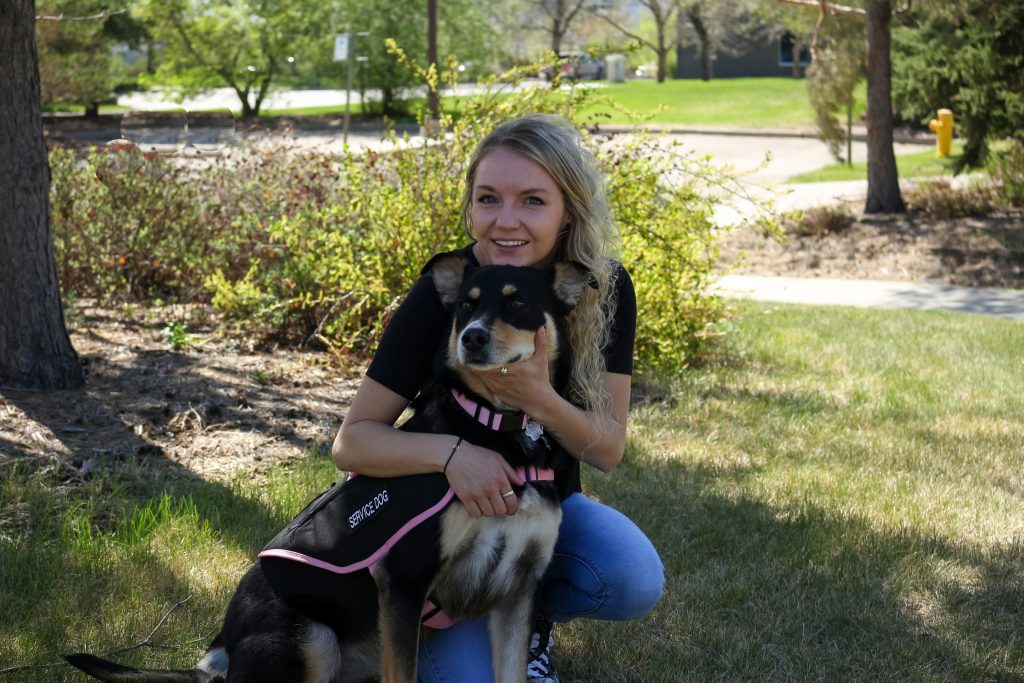
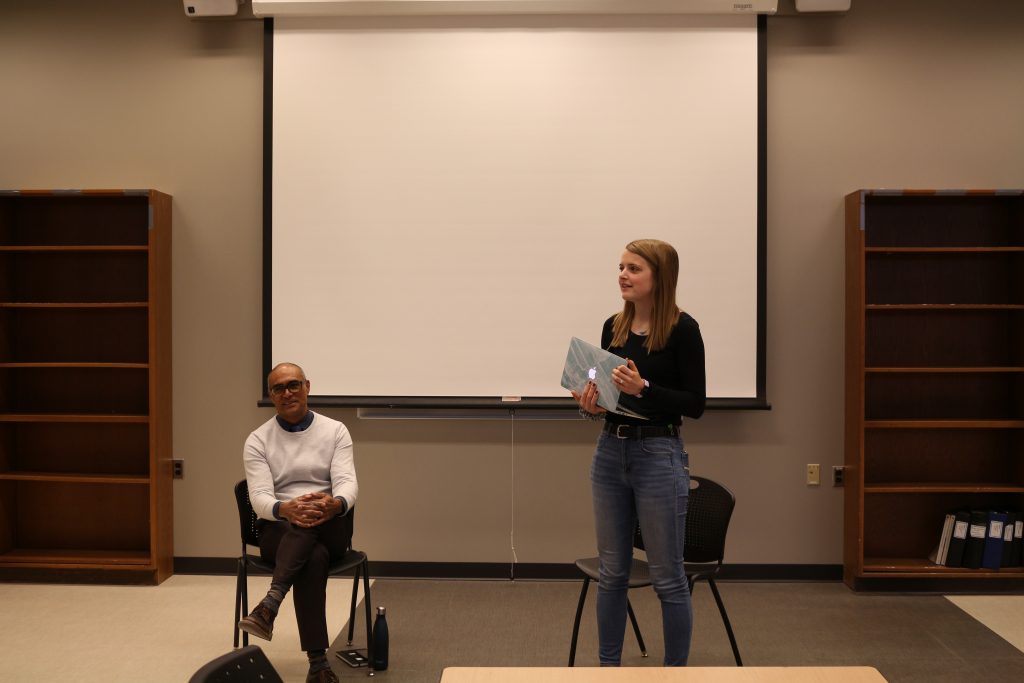
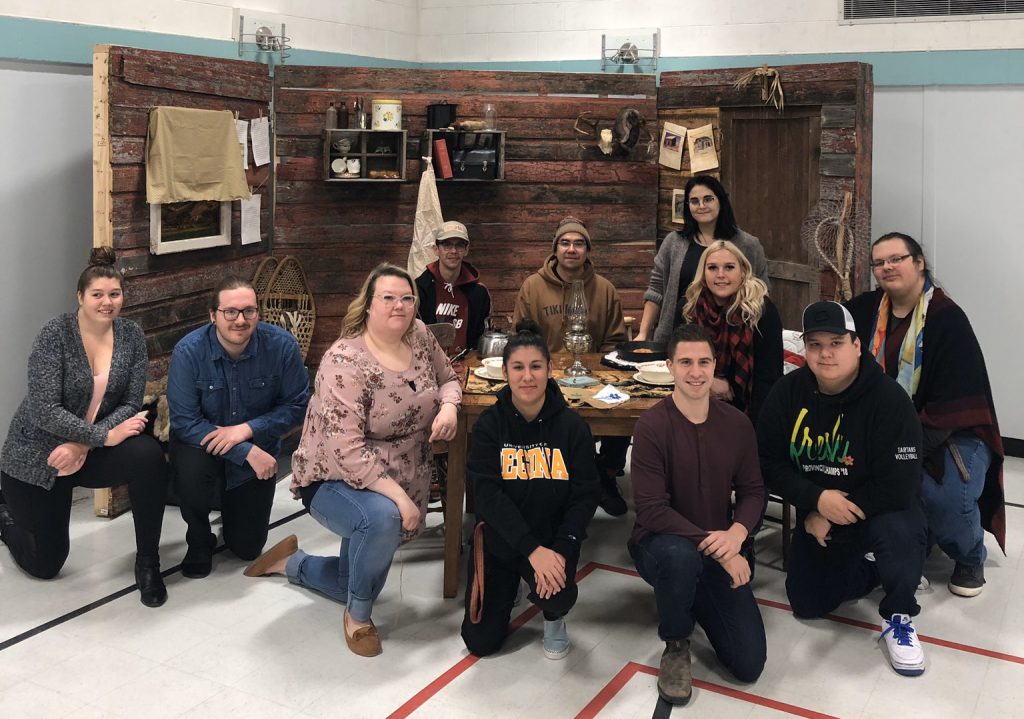
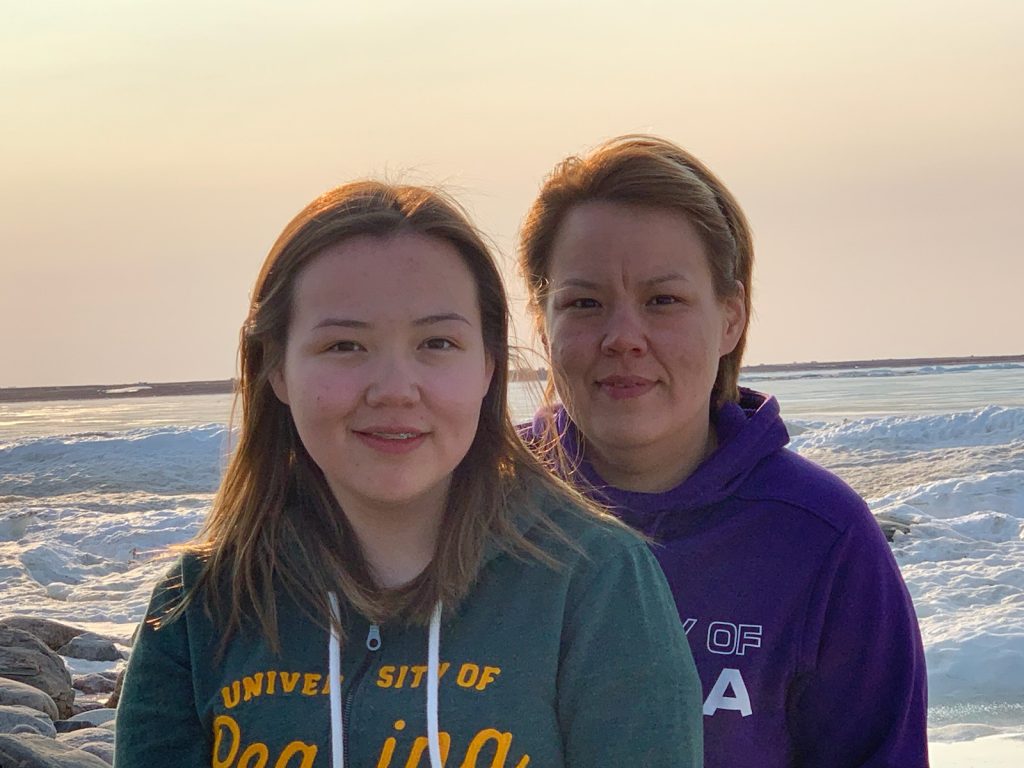
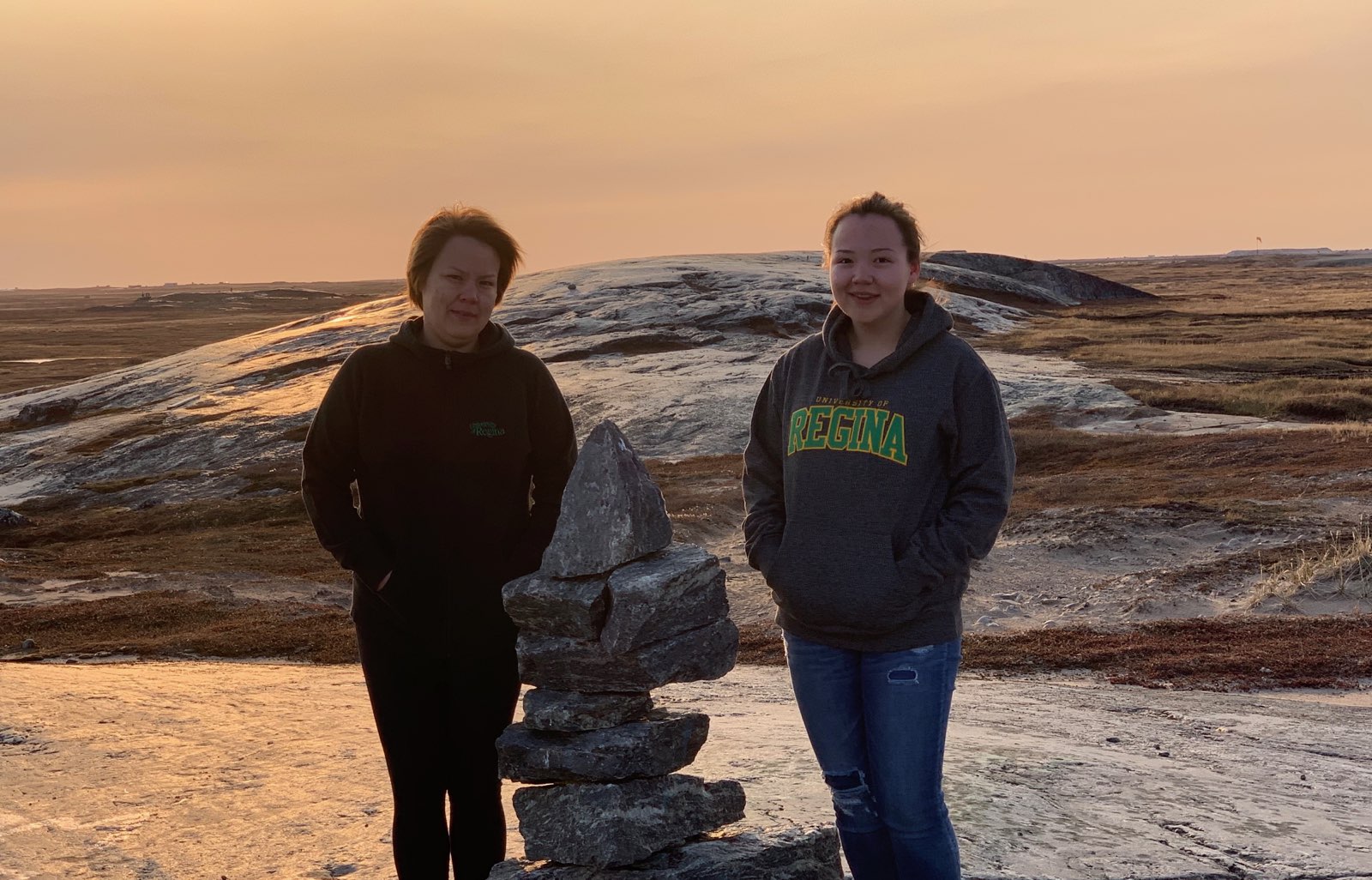
 Copland says, “We both felt so lucky to study alongside each other. I think it’s rare for a mom and daughter from Nunavut to attend the same university at the same time. The best part of it all was the support I was able to give her. We are from a small community and there was a big change in scenery so being there for her when she was trying to adjust to all the change was something I’d want to do with all my children. I want them to know that there is a whole world for them to explore out there—‘it’s a small world after all!’”
Copland says, “We both felt so lucky to study alongside each other. I think it’s rare for a mom and daughter from Nunavut to attend the same university at the same time. The best part of it all was the support I was able to give her. We are from a small community and there was a big change in scenery so being there for her when she was trying to adjust to all the change was something I’d want to do with all my children. I want them to know that there is a whole world for them to explore out there—‘it’s a small world after all!’”